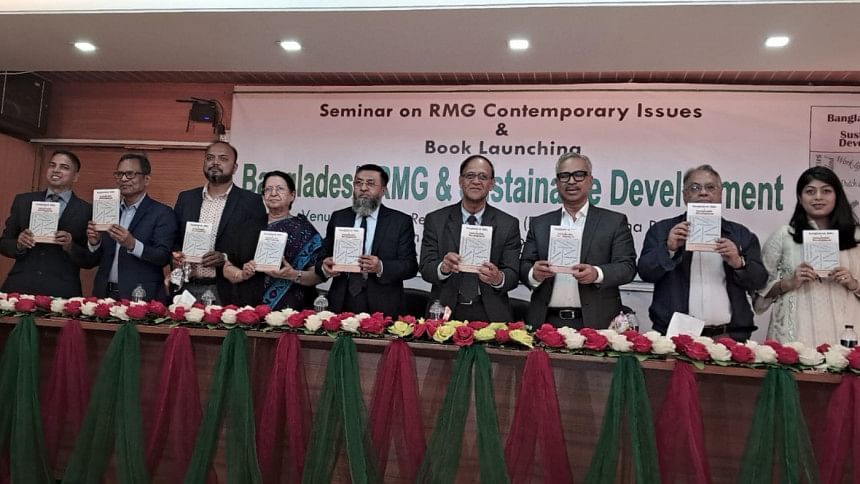Bond licence rules need to be relaxed

Bond licence rules need to be eased for the expansion of businesses as 4,187 bond licences became inactivate over the past 14 years and only 1,558 new ones were issued, according to a new study made public yesterday.
Reactivating bond licences is also very cumbersome as it involves many bureaucratic processes, said author Mohammad Hasan in his book on "Bangladesh RMG and Sustainable Development".
However, the bond licence is one of the major pillars behind the growth of the garment sector in Bangladesh, said Hasan at a ceremony over launching his book at Economic Reporters' Forum (ERF) in Dhaka.
Calling for simplifying the process for availing the bond facility, he said there were also a few other major challenges in the garment sector.
These include a gas crisis, a lack of ease in doing business, bureaucratic tangles and exporters not being well informed about export credit guaranteed scheme, he said.
He also suggested for regional minimum wage structures for garment workers instead of a central one as the cost of living and expenses varies from one area to another.
Bangladesh's share in global garment trade is below 7 percent, which indicates ample opportunities for growth, said Faruque Hassan, president of the Bangladesh Garment Manufacturers and Exporters Association (BGMEA).
Vietnam has grown its garment businesses with foreign direct investment but in case of Bangladesh, over 95 percent of the investment is made by locals, he told the ceremony.
Hassan expects Bangladesh's share in the global garment business to be much higher than the World Trade Organization estimate of 2023, citing that China was losing its market share.
The BGMEA chief, however, said dependence on a single product for export earnings was not good for the economy, it needs to diversify to other sectors.
Mohammad Hatem, executive president of the Bangladesh Knitwear Manufacturers and Exporters Association (BKMEA), said Bangladesh Bank should issue a circular to stop international clothing retailers and brands from making deferral payments to local garment suppliers.
Because in many cases, the international retailers and brands pay the local suppliers after selling the goods after six months for which the garment suppliers face difficulties, he said.
Mayeesha Mahmud, director of Cotton Group, said the book is helpful for everyday business processes and speaks about the unparalleled growth of the garment sector in Bangladesh.
Ferdaus Ara Begum, chief executive officer of Business Initiative Leading Development, said the book speaks of the garment sector's target to make export earnings of $100 billion by 2030.
She also said availing the bond licence was very difficult and the rules need to be relaxed in the interest of the growth of businesses.
Akhter Hussain, former chairman of the Department of Public Administration at the University of Dhaka, said the book covers many aspects of the economy.
Ilahi Dad Khan, former bureaucrat and editor of the book, are not written too much on garment industry in Bangladesh although the sector is the highest economic contributing area in Bangladesh.
ASM Tareq Amin, editor and publisher of Textile Today, Bangladesh, advocated for a more sustainable growth of the garment sector through the protection of the environment.
Professor Dr Md Fayyaz Khan, vice-chancellor of the Bangladesh University of Business and Technology, also spoke. Mohammad Refayet Ullah Mirdha, president of the ERF, moderated the seminar.

 For all latest news, follow The Daily Star's Google News channel.
For all latest news, follow The Daily Star's Google News channel. 



Comments